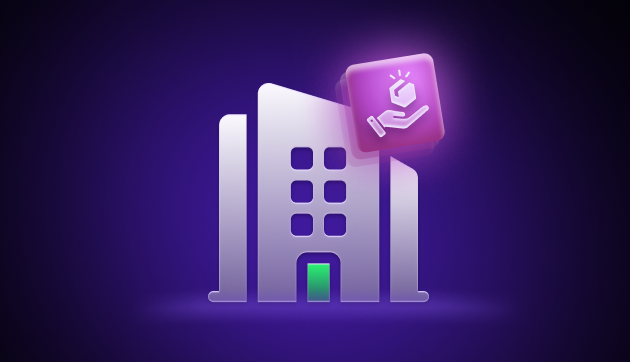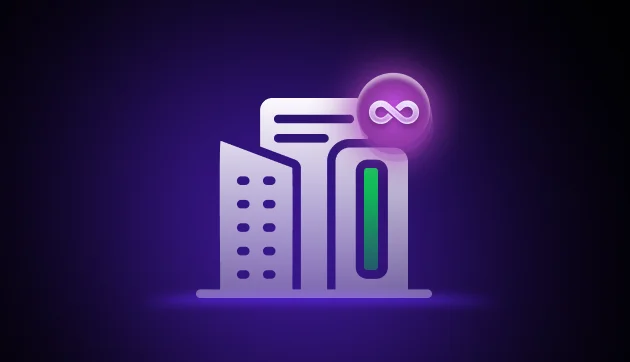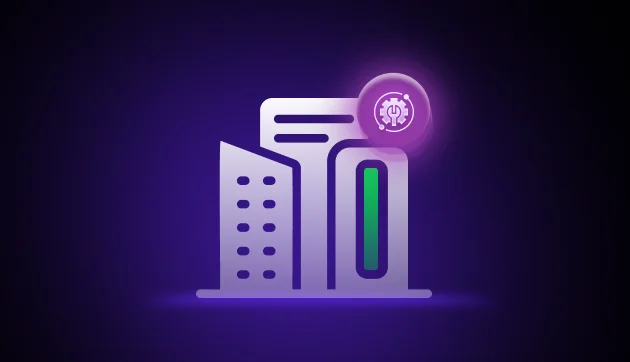
From Consulting to Software Engineering: What Nobody Tells You [2025 Guide]
Oct 10, 2025 6 Min Read 2090 Views
(Last Updated)
Do you want to switch from consulting to software engineering? Well, you should know that career transitions typically take one-two years to complete. However, this timeline can be significantly shortened with the right approach and guidance and if you have a guide like me.
According to research by Herminia Ibarra, conventional career change methods often lead to disappointing results. In fact, many professionals successfully pivot to software engineering much faster by taking action rather than just planning.
Hence, in this guide, you’ll discover how to transition into software engineering effectively without any bogus. We’ll cover everything from exploring coding through small projects to building the right technical skills and leveraging your consulting background as a strength. Let’s get started!
Table of contents
- Who are Software Consultants and Why Their Transition Is Easier
- Why people switch from consulting to software engineering
- Common frustrations in consulting roles
- What draws people to tech and coding
- How to go from consulting to software engineering: step-by-step
- Step 1: Exploring software engineering before committing
- Step 2: Building the right skills
- Soft Skills
- Step 3: Education Path
- Step 4: Getting your first job in tech
- Concluding Thoughts…
- FAQs
- Q1. Is it too late to switch to software engineering at 33?
- Q2. How long does it typically take to become job-ready as a software engineer?
- Q3. What are the key technical skills to focus on for a career change to software engineering?
- Q4. How can I leverage my consulting background when transitioning to software engineering?
- Q5. What salary can I expect as an entry-level software engineer?
Who are Software Consultants and Why Their Transition Is Easier
Software consultants sit at the intersection of business consulting and hands-on engineering. Unlike traditional consultants who focus mostly on strategy or business operations, software consultants often work directly with clients to design, prototype, and sometimes even implement technical solutions.
This means many software consultants already:
- Write or review code (especially in roles tied to custom app development or enterprise integration).
- Collaborate closely with developers and product managers.
- Understand system architecture and client requirements deeply.
Because of this hybrid exposure, transitioning from a software consulting role to a full-fledged software engineering job is often smoother and faster.
Why people switch from consulting to software engineering
The transition from consulting to software engineering continues to gain momentum as professionals seek more fulfilling career paths. Understanding the driving factors behind this shift reveals important insights for those considering a similar move.
![From Consulting to Software Engineering: What Nobody Tells You [2025 Guide] 1 consulting to software engineering](https://www.guvi.in/blog/wp-content/uploads/2025/06/Why-people-switch-from-consulting-to-software-engineering@2x-1200x630.png)
1. Common frustrations in consulting roles
Consulting careers often come with significant challenges that push professionals to explore alternatives. This exodus stems from several key pain points:
- Intense pressure: Consultants face constant demands for perfection with little room for error
- Limited career progression: The junior/senior seniority system offers few long-term growth opportunities
- Work-life imbalance: Demanding travel schedules and unpredictable assignments make personal planning nearly impossible
- Lack of belonging: Consultants often feel like outsiders both at their firm and at client sites
Furthermore, many consultants experience what’s called “brownout”—losing motivation because their work no longer feels meaningful.
2. What draws people to tech and coding
Beyond escaping consulting frustrations, specific aspects of software engineering attract career changers:
Autonomy and creativity stand out as primary motivators. Unlike consulting, where you’re frequently “told exactly what to do and how to do it,” coding offers the satisfaction of building something tangible. This creative control provides an immediate sense of accomplishment missing in consulting roles.
Additionally, many former consultants report a significant “morale boost” when transitioning to engineering roles where “you are not treated as a commodity”. The opportunity to collaborate directly with leadership (CTO and VP level) also appeals to those accustomed to hierarchical consulting structures.
Interestingly, the straightforward feedback loop in software development—completing clear tasks and seeing immediate results—provides satisfaction that resembles the rewarding mechanics of video games.
And let’s not ignore the financial upside—software engineers in top Indian product companies earn between ₹18–₹45 LPA within just 3–5 years of experience, with entry-level roles at startups often starting around ₹10–₹15 LPA. For many, this is a compelling shift from consulting salaries that plateau early and are heavily bonus-dependent.
How to go from consulting to software engineering: step-by-step
Now that we’ve understood the whys, it’s time to get to the how. How you make your transition determines whether you will have a successful career or not and hence this path is extremely important to plan properly and with guided help. Let’s see how you must go about it.
![From Consulting to Software Engineering: What Nobody Tells You [2025 Guide] 2 consulting to software engineering](https://www.guvi.in/blog/wp-content/uploads/2025/06/How-to-go-from-consulting-to-software-engineering_-step-by-step@2x-1200x630.png)
Step 1: Exploring software engineering before committing
Before diving headfirst into a career change, testing the waters of software engineering can save you time and potentially disappointment. Here are practical ways to explore coding without fully committing to ensure it’s truly the right path for your transition from consulting.
![From Consulting to Software Engineering: What Nobody Tells You [2025 Guide] 3 Step 1 Exploring software engineering before committing@2x](https://www.guvi.in/blog/wp-content/uploads/2025/06/Step-1_-Exploring-software-engineering-before-committing@2x-1200x630.png)
1. Try small coding projects
Starting with simple coding projects provides hands-on experience that theoretical knowledge alone cannot match. Begin by:
- Experimenting with HTML and CSS to build basic web pages
- Creating something original rather than just following tutorials
- Working on open-source projects to mimic collaborative environments
As one successful career-changer noted, “I started playing around with HTML and CSS. I followed tutorials and coded along to build some basic web pages. This made me see that it was something I really wanted to get into”.
Remember that personal projects showcase your genuine abilities. Employers can easily spot tutorial-based work “from a mile away”. Instead, focus on building something that solves a real problem you’ve encountered.
2. Join online communities and forums
Online communities serve as virtual gathering places where you can learn, share knowledge, and connect with experienced developers. Some valuable platforms include:
Stack Overflow for technical questions, GitHub for code collaboration, Reddit for diverse programming discussions, and Discord for real-time developer chat.
These communities offer tremendous value beyond just answering questions. As one source explains, “With so many languages, tools, frameworks, and libraries out there, having access to countless colleagues worldwide significantly increases your chances of succeeding”.
Step 2: Building the right skills
The path from consulting to software engineering requires specific technical and interpersonal skills. Fortunately, your consulting background provides a solid foundation for this transition.
![From Consulting to Software Engineering: What Nobody Tells You [2025 Guide] 4 Step 2 Building the right skills@2x](https://www.guvi.in/blog/wp-content/uploads/2025/06/Step-2_-Building-the-right-skills@2x-1200x630.png)
1. Technical Skills
To succeed as a software engineer, mastering core technical competencies is essential. Unlike consulting, which often involves high-level solutioning, software engineering is hands-on and execution-driven.
Key Areas to Focus On:
a. Programming Languages
- Learn widely-used languages such as Python, JavaScript, Java, or Go.
- Choose a language based on your target field (e.g., Python for data science, JavaScript for web development).
- Build small projects to gain fluency and confidence.
b. Data Structures and Algorithms
- Understand how to manipulate data efficiently using arrays, linked lists, trees, graphs, and hash maps.
- Practice common algorithmic patterns like sorting, recursion, dynamic programming, and backtracking.
- Platforms like LeetCode, HackerRank, and Codeforces are helpful.
c. Version Control
- Learn Git and GitHub for code versioning, collaboration, and managing pull requests.
- Understand branching, merging, and resolving conflicts.
d. Software Development Lifecycle (SDLC)
- Familiarize yourself with Agile methodologies and practices like Scrum, Kanban, and sprint planning.
- Learn about CI/CD pipelines, testing frameworks, and deployment strategies.
e. System Design Basics
- Understand how systems scale, load balancing, caching, and microservices architecture.
- Read resources like “System Design Primer” or watch system design videos on YouTube.
f. Databases
- Learn to use SQL databases like PostgreSQL or MySQL and NoSQL databases like MongoDB.
- Understand indexing, transactions, and normalization.
2. Soft Skills
While technical skills get your foot in the door, soft skills are what make you a well-rounded software engineer. These are especially crucial for ex-consultants, as your previous strengths can now be tailored for tech environments.
Important Soft Skills for Engineers:
a. Problem Solving
- A core skill in both consulting and engineering.
- Focus on breaking down complex issues into solvable chunks using logical reasoning.
b. Communication
- Learn to clearly explain technical decisions to both engineers and non-technical stakeholders.
- Document code and system architecture effectively.
c. Collaboration
- You’ll work closely with product managers, designers, QA, and DevOps.
- Use tools like Slack, Jira, and Notion effectively in team environments.
d. Adaptability
- Transitioning from consulting means facing new terminologies and workflows.
- Stay open to feedback and learning through code reviews, pair programming, and retrospectives.
Step 3: Education Path
Transitioning from consulting to software engineering doesn’t necessarily require a traditional Computer Science degree, but having a strong foundational education in relevant technical areas is highly beneficial.
![From Consulting to Software Engineering: What Nobody Tells You [2025 Guide] 5 Step 3 Education Path@2x](https://www.guvi.in/blog/wp-content/uploads/2025/06/Step-3_-Education-Path@2x-1200x630.png)
1. Formal Education: Not Always Required, But Valuable
While many software engineers do come from a background in Computer Science or Software Engineering, the industry has evolved to accommodate talent from non-traditional paths. Here’s how formal education fits into the transition:
- Bachelor’s Degree (Optional but Helpful): Degrees in Computer Science, Information Technology, Software Engineering, or related fields provide a strong theoretical base in data structures, algorithms, system architecture, and programming paradigms. If you already have a degree in another domain, a second degree isn’t mandatory—but supplementing with focused coursework is strongly recommended.
- Master’s Degree (Optional): Some consultants opt for a Master’s in Computer Science or a tech-focused MBA to bridge the gap between business and technical skills. However, real-world experience and projects often outweigh the need for another full degree.
2. Alternative Education Paths (The ones I highly recommend for transitioners)
Consultants often prefer flexible, fast-track education routes due to their work experience and time constraints. Some effective options include:
- Coding Bootcamps: Intensive programs (typically 8–24 weeks) focused on practical skills in full-stack development, cloud computing, DevOps, or data engineering. These can help build a portfolio and land entry-level software engineering roles.
- Online Courses and Certifications: Platforms like HCL GUVI with its Full Stack Development Course, Coursera, edX, and Udacity offer affordable, self-paced courses in Python, Java, system design, databases, and more.
To prove my case, look at this table:
| Pathway | Suitable For | Key Benefits |
| Computer Science Degree | Beginners with time/resources | Strong theoretical foundation |
| Coding Bootcamp | Fast-track learners (YOU) | Practical, job-ready skills |
| Online Courses | Self-motivated learners (YOU) | Flexible, affordable, scalable |
How long does it take to become job-ready?
Realistically, expect 6-12 months with dedicated practice through bootcamps. Self-learning typically extends this timeline to 18-24 months. Your consulting experience may accelerate this process if you can demonstrate transferable skills effectively.
Step 4: Getting your first job in tech
After building the right skills, securing your first tech job becomes the ultimate challenge. Landing a software engineering role requires strategic preparation, especially when transitioning from consulting.
![From Consulting to Software Engineering: What Nobody Tells You [2025 Guide] 6 Step 4 Getting your first job in tech@2x](https://www.guvi.in/blog/wp-content/uploads/2025/06/Step-4_-Getting-your-first-job-in-tech@2x-1200x630.png)
1. How to build a portfolio that stands out
Your portfolio serves as tangible proof of your coding abilities. Unlike resumes, portfolios demonstrate rather than simply tell about your skills. A compelling portfolio should include:
- Showcased projects that display a range of abilities
- Detailed documentation explaining your problem-solving approach
- Customized content tailored to specific roles you’re targeting
Initially, consider hosting your portfolio on platforms like GitHub Pages or creating a personal domain which itself “serves as a portfolio project”.
2. Using your consulting background as a strength
Your consulting experience provides valuable transferable skills that tech employers seek. Indeed, many consulting firms hire engineering graduates because they possess “strong quantitative ability” and are “determined and ready for challenges”.
Highlight your experience with client management, problem-solving, and communication. These soft skills complement technical abilities and can differentiate you from other candidates who may lack business acumen.
3. Software engineering roles and salaries
Here’s a breakdown of the most common roles in software engineering, along with what each one entails:
1. Software Engineer I (Entry-Level / Junior Developer)
- Typically for recent graduates or individuals with less than 2 years of experience.
- Focuses on writing and testing code under the supervision of senior team members.
- Often works on specific features or bug fixes.
Skills Required:
- Proficiency in at least one programming language (e.g., Python, Java, JavaScript).
- Basic understanding of version control, APIs, and debugging tools.
Average Salary (India – 2025): ₹6–10 LPA
2. Software Engineer II / Mid-Level Developer
- 2–4 years of experience.
- Manages small modules or features independently.
- Begins participating in design decisions and code reviews.
Skills Required:
- Deep understanding of frameworks and architecture.
- Ability to mentor juniors and collaborate with cross-functional teams.
Average Salary (India – 2025): ₹12–18 LPA
3. Senior Software Engineer
- 4–7 years of experience.
- Owns significant parts of a project’s architecture.
- Plays a leadership role in both development and team mentorship.
Skills Required:
- Strong system design and optimization skills.
- Deep experience with backend or frontend frameworks.
- Proficiency in testing, deployment, and CI/CD tools.
Average Salary (India – 2025): ₹20–35 LPA
4. Tech Lead / Lead Software Engineer
- 7+ years of experience.
- Leads a team of engineers while still contributing to code.
- Bridges the gap between business needs and technical implementation.
Skills Required:
- Leadership and communication.
- Decision-making on architecture, scalability, and tooling.
- Stakeholder management.
Average Salary (India – 2025): ₹35–50 LPA
5. Engineering Manager / Architect
- 8–12+ years of experience.
- Manages engineering teams and oversees multiple projects.
- Focus shifts from coding to managing people, budgets, and timelines.
Skills Required:
- Project management.
- Resource allocation and hiring.
- Technical vision and roadmap planning.
Average Salary (India – 2025): ₹50–70 LPA
Concluding Thoughts…
As we conclude, it’s definitely established that transitioning from consulting to software engineering offers a rewarding career path with tangible benefits. Throughout this guide, you’ve seen how this career change brings greater autonomy, creativity, and work-life balance compared to consulting roles.
Furthermore, the software engineering field presents substantial financial growth potential, with salaries in India ranging from ₹5-6 lakhs for beginners to ₹14+ lakhs for experienced professionals. Your consulting background actually serves as a competitive advantage.
Those client management skills, analytical thinking abilities, and presentation talents complement technical expertise perfectly. Therefore, rather than starting from scratch, you’re building upon an existing foundation of valuable professional experience.
Nevertheless, the estimated 6-24 month timeline represents a worthwhile investment compared to the traditional three-year career transition period. Good luck!
FAQs
Q1. Is it too late to switch to software engineering at 33?
No, 33 is not too late to transition into software engineering. Many professionals successfully make this career change in their 30s and beyond. With dedication and the right approach, you can acquire the necessary skills and find opportunities in the field.
Q2. How long does it typically take to become job-ready as a software engineer?
The timeline can vary, but generally, it takes about 6-12 months of dedicated learning through bootcamps or 18-24 months through self-learning to become job-ready. Your existing skills and experience may help accelerate this process.
Q3. What are the key technical skills to focus on for a career change to software engineering?
Focus on learning programming languages like Python, Java, or JavaScript, as well as understanding data structures, algorithms, and software development methodologies. For front-end development, learn HTML, CSS, and frameworks like React. Back-end developers should also study database management and server architecture.
Q4. How can I leverage my consulting background when transitioning to software engineering?
Your consulting experience provides valuable transferable skills such as problem-solving, communication, and project management. Highlight these skills when applying for software engineering roles, as they complement technical abilities and can set you apart from other candidates.
Q5. What salary can I expect as an entry-level software engineer?
Entry-level software engineering salaries can vary widely depending on location and company. In general, you can expect to start around ₹5-6 lakhs annually in India, with the potential for significant growth as you gain experience and expertise in the field.




































Did you enjoy this article?